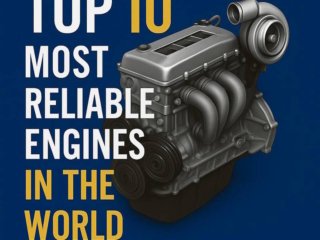Top 10 Mistakes People Make When Buying an Engine (And How to Avoid Them)
Introduction
Buying a replacement engine can be stressful—especially when your vehicle is off the road or you’re trying to meet a client’s deadline. Whether you’re a car owner, a garage, or a reseller, avoiding key mistakes can save you time, money, and serious headaches.
Here are the top 10 mistakes people often make when buying an engine—and how to avoid them.
1. Not Checking the Engine Code
Every engine has a specific code, and getting it wrong can lead to major compatibility issues.
Tip: Always confirm the exact engine code from your current engine and match it precisely when sourcing a replacement.
2. Skipping a Compression or Leak-Down Test
A clean-looking engine doesn’t always mean it’s mechanically sound.
Tip: Ask the seller for compression or leak-down test results. If unavailable, consider having a mechanic inspect the engine before purchase.
3. Assuming Low Mileage Means Better Quality
A low-mileage engine might have suffered from poor maintenance, while a higher-mileage unit with a full service record could be more reliable.
Tip: Prioritize maintenance history and consistent oil changes over mileage alone.
4. Buying from Unverified Sellers
Engines listed on untrusted marketplaces often come with high risk and no support.
Tip: Purchase only from verified sellers with established reputations and customer reviews.
5. Ignoring Warranty Terms
Many buyers overlook warranty limitations and are left without recourse when something goes wrong.
Tip: Read warranty details carefully, including what’s required for it to remain valid (e.g., installation by certified mechanics).
6. Underestimating Shipping and Handling Risks
Engines can be damaged in transit, especially without proper packaging or insurance.
Tip: Confirm shipping methods, packaging quality, and whether insurance is included in the cost.
7. Not Verifying Engine History
An engine pulled from a wreck or exposed to flooding could have hidden damage.
Tip: Ask for any available history—such as VIN, previous modifications, or usage (e.g., from a taxi or performance car).
8. Confusing Long Block vs Short Block
Some buyers unknowingly purchase incomplete engines.
Tip: Know the difference. A short block includes just the engine block and internals. A long block usually includes the head and sometimes accessories. Ask for a complete part list.
9. Overlooking Installation Costs
The cost of installation, tuning, and extra parts can quickly add up.
Tip: Budget not just for the engine, but for everything needed to install and run it properly.
10. Skipping the Return Policy
If the engine is defective or incompatible, a return policy can save the day—but not all sellers offer one.
Tip: Choose sellers that clearly outline their return process and timeframes.
Final Thoughts
Whether you’re replacing a failed engine or upgrading for performance, doing your homework pays off. By avoiding these common pitfalls, you’ll make smarter choices—and get more life out of your investment.
Looking for a trusted source for verified used and replacement engines?
Explore our latest inventory at Orbi Motors (https://orbimotors.com) and shop with confidence.



